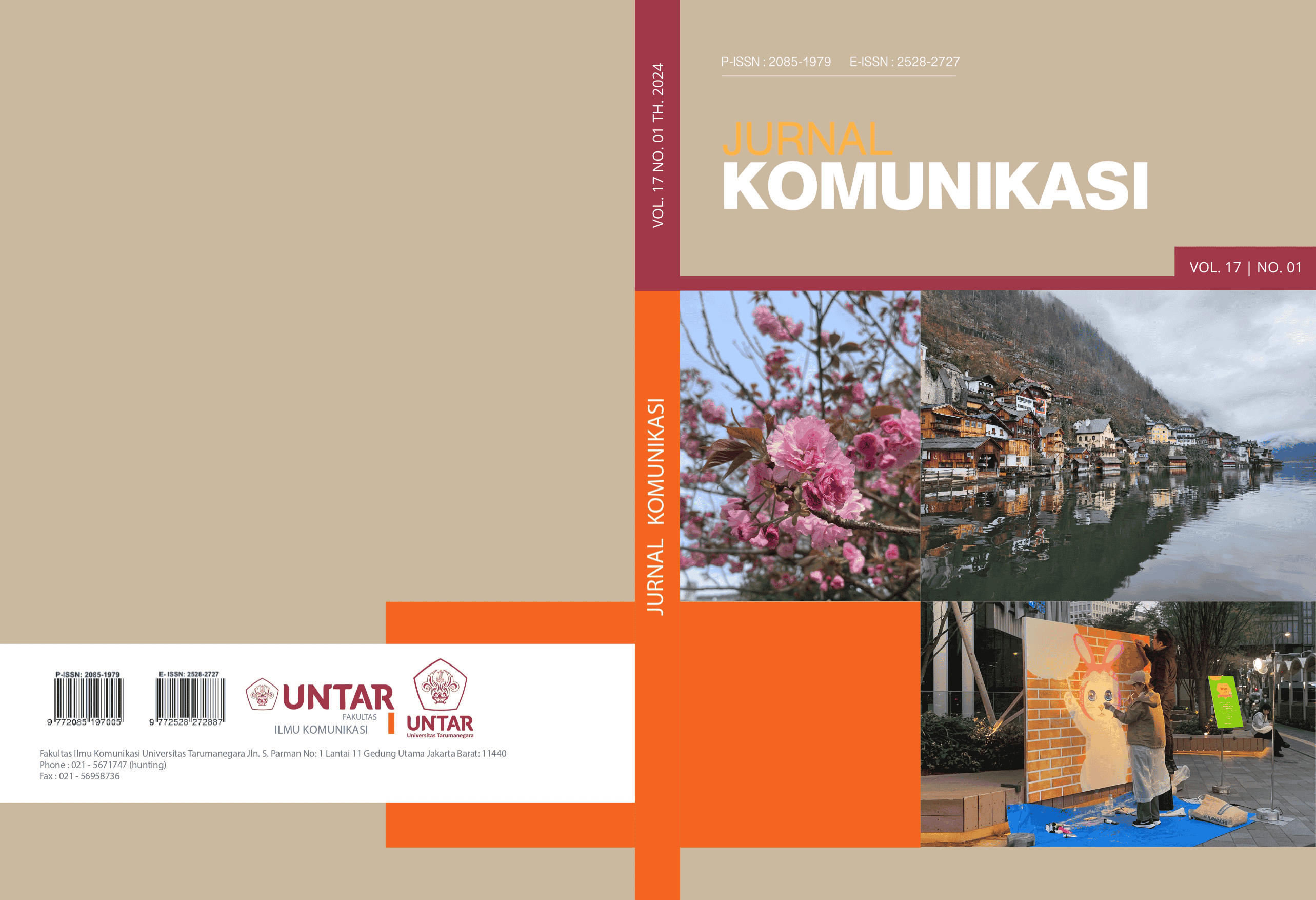How Radio Republik Indonesia Innovates and Stays Sustainable in the Digital Age: A Look at Management and Strategy
Main Article Content
Abstract
Radio Republik Indonesia (RRI) is a public broadcaster that is facing many challenges in the digital age. These include going digital, creating sustainable business models, creating quality content, transparent and professional management, and developing skilled workers. This study sought new management ideas to make RRI more competitive and sustainable. Researchers have used a qualitative approach to review the books, journals, and documents of Indonesian public broadcasters. They collected and analysed the data and documents. Successful management requires creating engaging content, using digital technology, building sustainable business models, effectively managing resources, maintaining good governance, and forming partnerships. RRI needs to use digital technology wisely, find new funding sources, create content that attracts audiences, practice good governance, and train skilled workers to remain relevant and competitive. By focusing on these areas, RRI can improve its competitiveness and sustainability in the digital world. This study aimed to create a new management model and policy recommendations to strengthen the role of RRI in the digital era.
Article Details
Section

This work is licensed under a Creative Commons Attribution-ShareAlike 4.0 International License.
This work is licensed under a Jurnal Komunikasi Creative Commons Attribution-ShareAlike 4.0 International License.How to Cite
References
Adwan, A. A., & Altrjman, G. (2024). Social media marketing and marketing management promote and develop brand sustainability strategies. International Journal of Data and Network Science, 8(1), 439–452. https://doi.org/10.5267/j.ijdns.2023.9.011
Allan S. (2007). Public Broadcasting. Wiley Online Library. https://doi.org/https://doi.org/10.1002/9781405165518.wbeosp117
Bauer, A., Bogner, A., Fuchs, D. (2021). Rethinking societal engagement under the heading of Responsible Research and Innovation: (novel) requirements and challenges. Journal of Responsible Innovation, 8(3), 342–363.
https://doi.org/10.1080/23299460.2021.1909812
Branderhorst, E. M. and Ruijer, E. (2024). Digital leadership in local governments: An empirical study of Dutch city managers. Local Government Studies, 51(3), 576–599. https://doi.org/10.1080/03003930.2024.2363368
Cocu, A., Dingli, S., Susnea, I., Pecheanu, E., Tudorie, C., & Istrate, A. (2025). Technology-Enabled Learning for Green and Sustainable Entrepreneurship Education. Administrative Sciences, 15(2), 45. https://doi.org/10.3390/admsci15020045
Fiorentino, R., Merendino, A., Lamboglia, R., & Grimaldi, F. (2020). How smart technologies can support sustainable business models: insights from an air navigation service provider. Management Decision, 58(8), 1715–1736. https://doi.org/10.1108/md-09-2019-1327
Firoj, K., & Mohammad, B. T. (2024). Measuring sustainability in the broadcasting media industry in Bangladesh. I-Manager’s Journal on Management, 18(3), 51. https://doi.org/10.26634/jmgt.18.3.20234
Grosseck G., Bran R. A., & Țîru, L. G. (2023). Digital Assessment: A Survey of Romanian Higher Education Teachers’ Practices and Needs. Education Sciences, 14(1), 32. https://doi.org/10.3390/educsci14010032
Iyamu I, Ramachandran S., Chang H.-J., Kushniruk A, Ibáñez-Carrasco F., Worthington C., Davies H. A., & Gilbert, M. (2025). Considerations for adapting digital competencies and training approaches to the public health workforce: An interpretive description of practitioner perspectives in Canada. BMC Public Health, 25(1). https://doi.org/10.1186/s12889-024-21089-1
Kurek, J., Mazutti, J., Leite Frandoloso, M. A., Brandli, L. L., & Lange Salvia, A. (2023). Sustainable business model innovation and design thinking: A bibliometric analysis and systematic review of the literature. Sustainability, 15(2), 988. https://doi.org/10.3390/su15020988
Ma, J., Qiu, T., Peng, C., & Liu, H. (2020). Unauthorised Broadcasting Identification: Deep LSTM Recurrent Learning Approach. IEEE Transactions on Instrumentation and Measurement, 69(9), 5981–5983. https://doi.org/10.1109/tim.2020.3008988
Mathrani, S., & Edwards, B. (2020). Knowledge-sharing Strategies in Distributed Collaborative Product Development. Journal of Open Innovation: Technology, Market, and Complexity, 6(4), 194. https://doi.org/10.3390/joitmc6040194
Menduni, E. (2007). Four steps in innovative radio broadcasting: From QuickTime to Podcasting. Radio Journal:International Studies in Broadcast & Audio Media, 5(1), 9–18. https://doi.org/10.1386/rajo.5.1.9_1
Mulyana, R., Rusu, L., & Perjons, E. (2023, October 5). How Hybrid IT Governance Mechanisms Influence Digital Transformation and Organizational Performance in the Banking and Insurance Industry of Indonesia. https://doi.org/10.62036/isd.2023.33
Nakamura, M., Okano, M., Takeuchi, T., & Tsuchida, H. Miyasaka, S. Aasakura and A. Sato, N. Shirai, K. and Murayama, Y. Narikiyo and T. Shitomi, T. (2019). Study on the Transmission System of Advanced ISDB-T. 1–5. https://doi.org/10.1109/bmsb47279.2019.8971915
Pérez-Seijo, S., Silva-Rodríguez, A. (2024). Innovation in Digital Media beyond technology: The audience-centred approach and pending challenges. Journalism and Media, 5(1), 311–324. https://doi.org/10.3390/journalmedia5010021
Ramachandran, S., Chang, H.-J., Worthington, C., Kushniruk, A., Ibáñez-Carrasco, F., Davies, H., Mckee, G., Brown, A., Gilbert, M., &
Iyamu, I. (2024). Digital Competencies and Training Approaches to Enhance the Capacity of Practitioners to Support the Digital Transformation of Public Health: Rapid Review of Current Recommendations. JMIR Public Health and Surveillance, 10, e52798. https://doi.org/10.2196/52798
Rohmah, N., Komarudin, K. (2023). Digital Transformation in Business Operations Management. American Journal of Economic and Management Business (AJEMB), 2(9), 330–336. https://doi.org/10.58631/ajemb.v2i9.57
Saito S., Murayama K., Shitomi T., Okano M., et al. (2016). 8 K terrestrial transmission field tests using dual-polarised MIMO and higher-order modulation OFDM. IEEE Transactions on Broadcasting, 62(1), 306–315. https://doi.org/10.1109/tbc.2015.2494853
Saldanha, D. M. F. Dias, and C. N., & Guillaumin, S. (2022). Transparency and accountability in digital public services: Learning from Brazilian cases. Government Information Quarterly, 39(2), 101680. https://doi.org/10.1016/J.GIQ.2022.101680
Salles, A., Evers, K., & Farisco, M. (2018). Neuroethics and Philosophy in Responsible Research and Innovation: The Human Brain Project. Neuroethics, 12(2), 201–211. https://doi.org/10.1007/s12152-018-9372-9
Sehl, A. (2020). Public Service Media in a Digital Media Environment: Performance from an Audience Perspective. Media and Communication, 8(3), 359–372. https://doi.org/10.17645/mac.v8i3.3141
Sjuchro, D. W., Sujana, L. R., Sjafirah, N. A., Rusmana, A., & Lusiana, E. (2023). Local public broadcasting institutions and digital literacy in distance-learning activities. Journal of Law and Sustainable Development, 11(12), e1708. https://doi.org/10.55908/sdgs.v11i12.1708
Stromback, J. (2025). Three Major Threats to Swedish-Ingly Politically Contested. SocArXiv Papers, December. https://osf.io/preprints/socarxiv/y9bva_v1
Zhang, C., Xu, J., Gao, Y., Tian, X., & Sun, X. (2024). Digital transformation, board diversity, and sustainable corporate development. Sustainability, 16(17), 7788. https://doi.org/10.3390/su16177788

